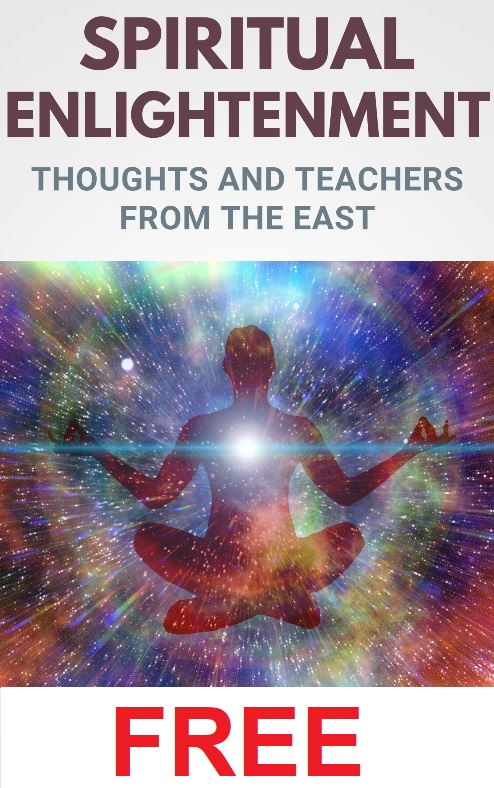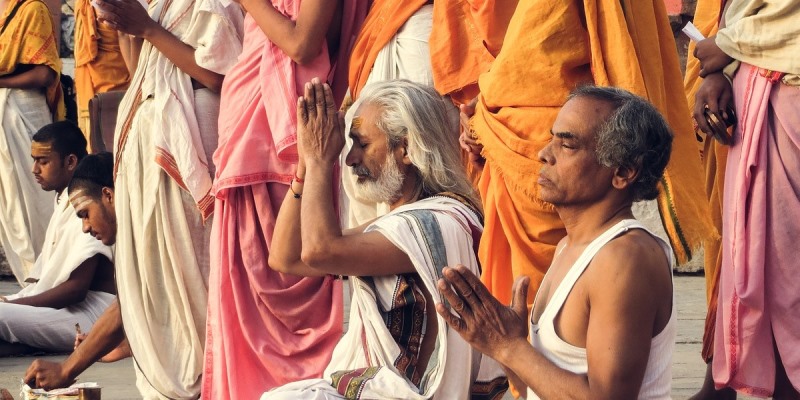
In India, and in some other countries in Asia, the term Samadhi points to a state of meditative consciousness or meditative absorption of the mind. However, the terms Kaivalya and Moksha rather refer to complete and enduring Self-Realization and Spiritual Enlightenment.
Below we’ll discuss both Samadhi and Moksha (Kaivalya).
Samadhi
Samadhi is a state of mind that is both still and mindful, and reveals complete self-knowledge. The Yogi perceives the identity and oneness of the individual soul and the Cosmic Spirit or Divine. It’s generally described as a blissful state, trance, or ecstasy.

The Samadhi experience is known in Buddhism as the last stage of the Noble Eightfold Path, and in Patanjali’s Ashtanga Yoga Sutras it’s the last limb (the eighth and final step) of the Yogic practice.
In Yogic traditions, Samadhi is achieved by contemplation and meditation, that is, by Dhyana, which is part of Yoga practices and the seventh limb in Patanjali’s Yoga Sutras.
Samadhi is usually described as a fleeting, temporary state of consciousness; it’s not yet complete and enduring Spiritual Enlightenment or Spiritual Liberation. That state of complete Liberation of Bondage is known as Kaivalya or Moksha.
Nevertheless, in Yogic traditions, one also speaks of Mahasamadhi, that is, “the Great Samadhi” or “Final Samadhi,” which is described as the voluntary act of consciously and deliberately leaving the body (while being in the state of Samadhi) at the moment of death, and as such — attaining complete Spiritual Liberation.
Kaivalya (Moksha or Nirvana)

Kaivalya or Moksha (sometimes also called Nirvana) is considered the final attainment of Yoga. It’s a state of consciousness described in a whole range of superlatives, such as: most complete understanding, supreme wisdom, first and last freedom, everlasting bliss, peace, happiness, and omnipresent intelligence, among many other expressions.
It means achieving complete solitude, detachment, and liberation of worldly bondage, insight in the “Real Self,” and the end of acquiring Karma, that is, the end of the cycle of rebirth (reincarnation) and full union with the Divine Spirit and subsequently attaining Spiritual Enlightenment.
It’s thought that the Kaivalya state of consciousness can be attained while still alive, at the moment of death, or immediately after death. Typically, it’s assumed that some type of Sadhana, that is, spiritual discipline or Yogic practice is needed to reach this exalted state.















